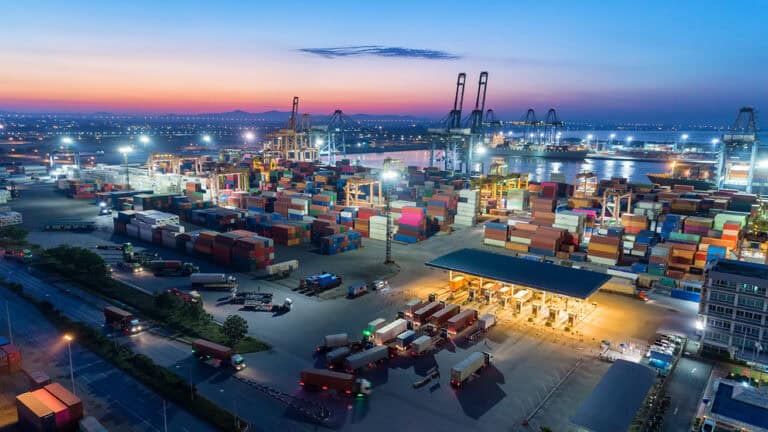
Change is good but often challenging. This is especially true when massive changes occur to regulatory data that affect international commerce. Yet a mammoth change in regulatory guidance occurs every five years that affects everyone moving goods globally. Like clockwork, every five years the World Customs Organization (WCO)—the international organization that manages the Harmonized System nomenclature commonly known as HS—publishes a significant revision to this critical catalog for classifying goods, which is the basis for determining customs duties, tariffs, admissibility and cross-border activities. The HS Nomenclature 2022 Edition makes some essential changes to the HS structure, including 351 sets of amendments covering a wide range of goods. That isn’t easy to manage.
Although the nomenclature undergoes a review every year, major revisions are introduced every five years after working groups from the over 212 countries that utilize the HS approve the changes. Organizations doing commerce in any of these countries need to comply with the new directives starting January 1, 2022. While you might think you have plenty of time, a lot of work needs to be completed well in advance of the deadline. Updating tables and business rules in databases that support software systems for global trade compliance is the first step.
A String of Digits
The HS includes over 5,000 commodity groups, each identified by a six-digit code. Certain countries require additional granularity to define products coming into or out of their jurisdictions. Consequently, up to four additional digits may be added to the base six-digit code. A product’s HS code determines customs and trade procedures, making it essential for companies to classify every product with accuracy. Incorrect classification can lead to customs clearance delays, incorrect and incomplete landed costs, heavy fines, penalties and higher duties.
E2open provides intuitive capabilities that leverage artificial intelligence (AI) to enable non-experts to quickly and easily classify goods with confidence. The system uses machine learning and natural language processing to guide users to the most precise classification, shielding them from the underlying complex terminology and hierarchy which would otherwise require deep expertise.
Influencing Changes: Culture, COVID and Concern
The substantial revisions in HS 2022 result from the world we live in and our changing social behaviors. Here are some of the highlights:
- A new subheading for smartphones has emerged along with a separate product category for multi-purpose intermediate assemblies like those found in flat panel display modules.
- Health and safety changes were made such as adding provisions to include classification codes for placebos and clinical trial kits for medical research, more specific information requirements for cell cultures and cell therapy, and dual-use items ranging from toxins to lab equipment.
- A heading for asbestos was eliminated and new subheadings were added for dual-use goods like radioactive materials, biological safety cabinets, items used in explosive devices (detonators) and organic pollutants that could be used in chemical warfare.
- New provisions for novel tobacco and nicotine-based products, including vaping devices and e-cigarettes, have been added.
- Classification of unmanned aerial vehicles (UAVs) or drones that weren’t prevalent in 2017 during the last revision are now included.
- New product codes are added to address environmental concerns and the movement of electrical and electronic waste, known as e-waste.
- The Food and Agriculture Organization of the United Nations also worked with the WCO to add subheadings and notes for items like these:
- Edible and non-edible insects
- Eight new genera of edible mushrooms
- Flours, meals and pellets made of fish products that are for human consumption
- We know that the world is getting older, too. Interestingly, a new subheading covers antique collector items of an age exceeding 250 years, where the existing subheading only covers 100-year-old items!
Customs administrations and regional economic communities have a huge task to ensure timely implementation of the 2022 HS Edition. However, importers and exporters should be gearing up now, too. To ease the burden, companies doing global trade can tap into e2open’s trade content database, which is already being updated with the changes so when the New Year clock strikes, customers will be ready.
When discussing the HS revisions recently, Farooque Nayyer, Vice President, Global Content at e2open, commented, “HS 2022 will reshape how more than 200 countries handle their trade compliance. Hence, awareness and the proper execution of product classification is a must. e2open’s content team is well prepared to accommodate the upcoming changes by updating the database in advance of the deadline. This will help ensure that customers are accurately managing their import and export programs.”
At the center of our global trade management applications for export, import and duty management is e2open’s Global Knowledge® application, which contains the industry’s most comprehensive database of government regulations and international business rules. e2open Global Knowledge is tightly integrated with a full suite of applications that help streamline and automate global trade. Updated daily by internal global trade specialists, our proprietary database contains entire customs tariff schedules and nomenclatures from more than 200 countries. In addition, you receive all the necessary data to classify goods, including tariff codes and the associated section and chapter notes, footnotes, appendices, binding rulings and WCO General Rules of Interpretation and Explanatory Notes.
To Learn More about the HS 2022 Edition and better understand the impact the changes will have on your compliance program, watch this on-demand webinar for a discussion by our industry experts. You can also enter your 2017 HS codes into our interactive tool to see the affected HS numbers with remarks regarding any changes.
For more programs that cover the HS, be sure to check out our upcoming Global Trade Academy courses. You can also get in touch with our industry compliance experts directly at GlobalTradeAcademy@e2open.com.
More from e2open
Data Sheet
E2open Global Knowledge
Discover how you can export and import goods more efficiently with fast access to the largest database of government regulations and international business rules.







